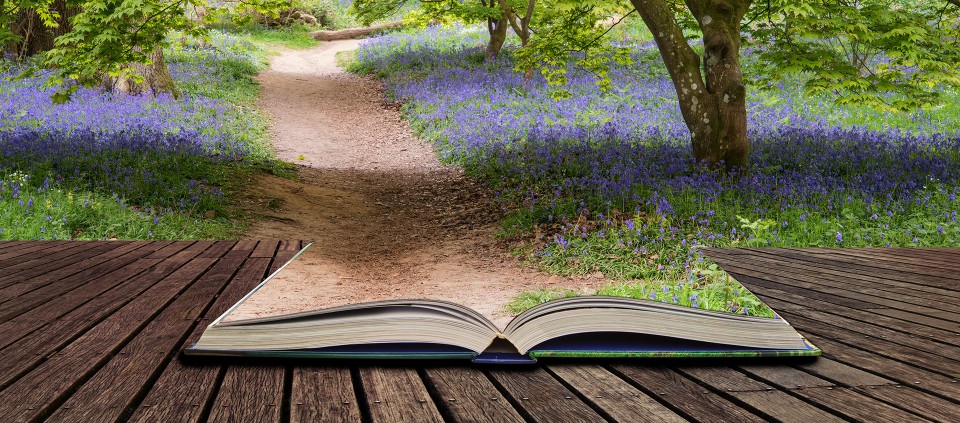The Five Stages of the Creative Path

For a long time now, a handful of my close friends have been telling me that I should write a book. “You’re such a good storyteller, Portland,” my friend Molly frequently says.
“You’ve got a book in you,” my friend Eden often reminds me. “I wish you’d write your stories down.”
But I haven’t. I’ve written for national magazines and for television. I’ve even taught writing. But turn my stories into a book? That’s daunting. I don’t know that I’m sufficiently inspired.
Consistent inspiration may be an unrealistic expectation, though. According to Dan Millman, author of Way of the Peaceful Warrior and coauthor Sierra Prasada of The Creative Compass: Writing Your Way from Inspiration to Publication, commitment—not inspiration—is what’s necessary to make your creative vision into a reality.
“Inspiration ebbs and flows,” Dan says. “We can’t and we don’t need to wait for it. We just do the work and, eventually, inspiration finds us.”
Sounds good, but when I even contemplate writing something as substantial as a book, I’m totally overwhelmed. I know, however, that breaking down any task into manageable parts makes it feel more achievable.
Dan and Sierra say that there are five universal stages of every creative path through which all artists must travel to manifest their vision. They’re stages worth pondering if you’re looking to turn the seed of an idea into a full-blown book that you can actually hold in your hands.
First, dream. What are you longing to create? Maybe spend some time on your back gazing at the clouds or scribbling thoughts on a page before you dive in and write this tome. What’s the story that you’re really yearning to tell?
Next, draft. “Just like you live with greater ease if you take reality into account when making plans,” says Sierra, “in order to tell a great story, you must dream with drafting in mind.” What are the parts of your story? Where does the story lead? Create an outline. Organize your tale into sections or chapters.
After that comes the real work: Develop it. That means digging in and making a commitment to flesh it out, bit by bit. “Your writing endures the same process of metamorphosis that a butterfly does,” says Sierra, “only that kind of transformation doesn’t just happen to you—you can also make it happen.” In that sense, developing your story isn’t that different from going to the gym regularly—you’ve just gotta do it.
Refinement comes only when you really know your story, “when you’ve built the foundations to your castles in the air,” says Sierra. “That’s when the fine-tuning comes in and you can more confidently choose the right words.” In other words, don’t fuss over the garnishes until the you’ve got the main dish under control.
And finally, you don’t write your tale only for it to sit tucked neatly in a manila envelope under your bed. The most rewarding step is to share it once you’ve sufficiently dreamed, drafted, developed, and refined it. Sharing it might mean simply passing it on to friends or giving a public reading. But, for some, it means publication.
“It’s become easier than ever to self-publish,” says Dan, who adds that there’s a gauntlet through which aspiring authors must pass to contract with established publishers. “It’s a worthy challenge that demands your best effort over time.”
Effort and time—two essential elements for achieving success in any field. Sounds like waiting for a lightning bolt of inspiration to strike isn’t the way to go about birthing this book that people tell me I need to write. Maybe it’s time to pick up my compass, point it in the direction I’d like to go, and take the first step.
Portland Helmich is the creator, host, and producer of the Kripalu Perspectives podcast series. She has been investigating natural health and healing as a host, reporter, writer, and producer for more than 15 years.
© Kripalu Center for Yoga & Health. All rights reserved. To request permission to reprint, please e-mail editor@kripalu.org.
Portland Helmich has been investigating natural health and healing for more than 15 years, as a host, reporter, writer, and producer.
Full Bio and Programs